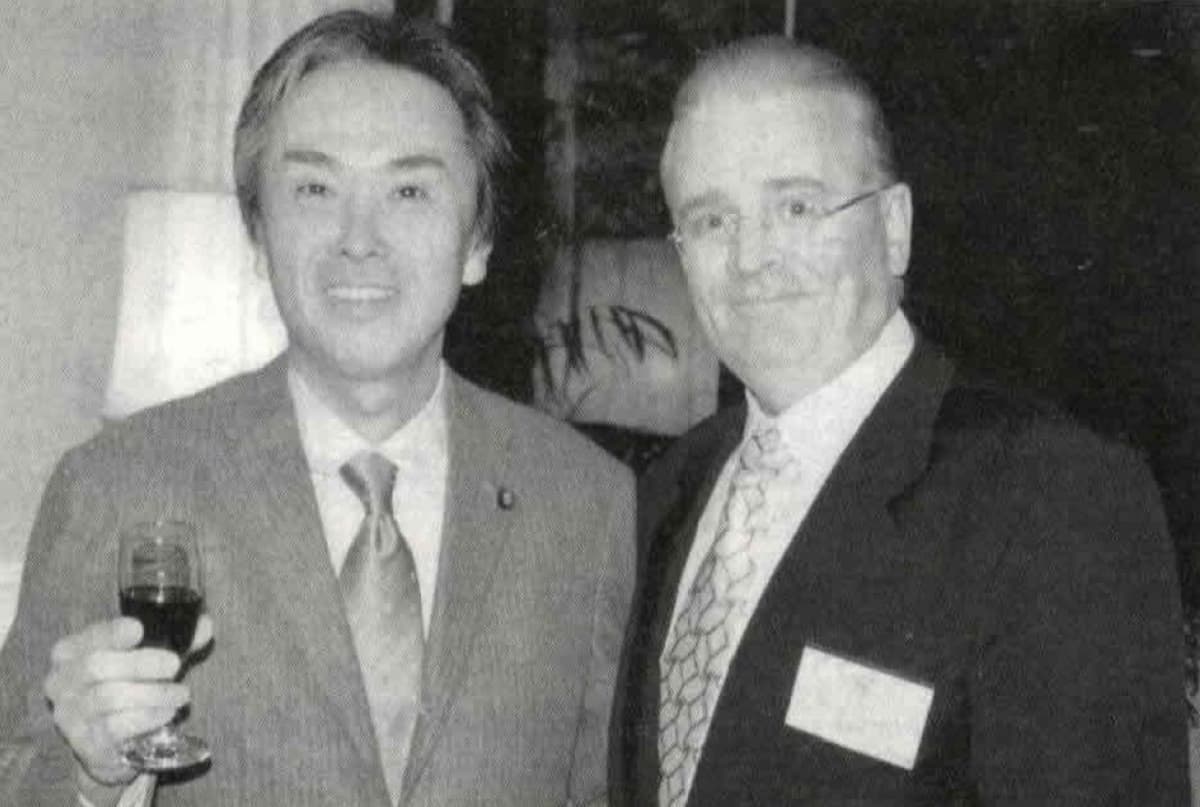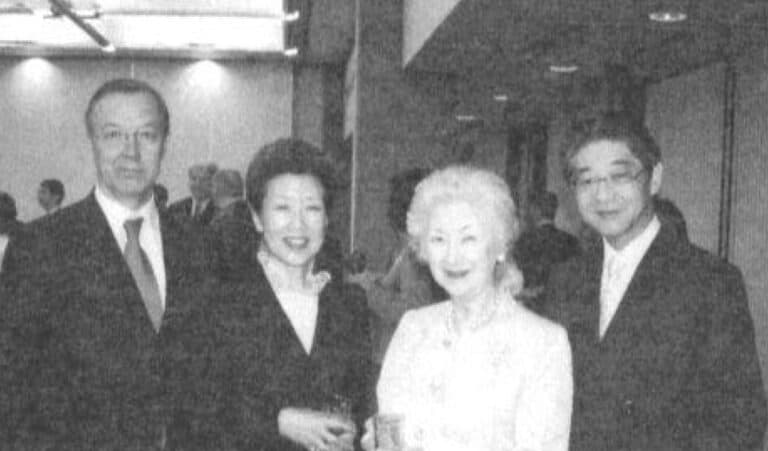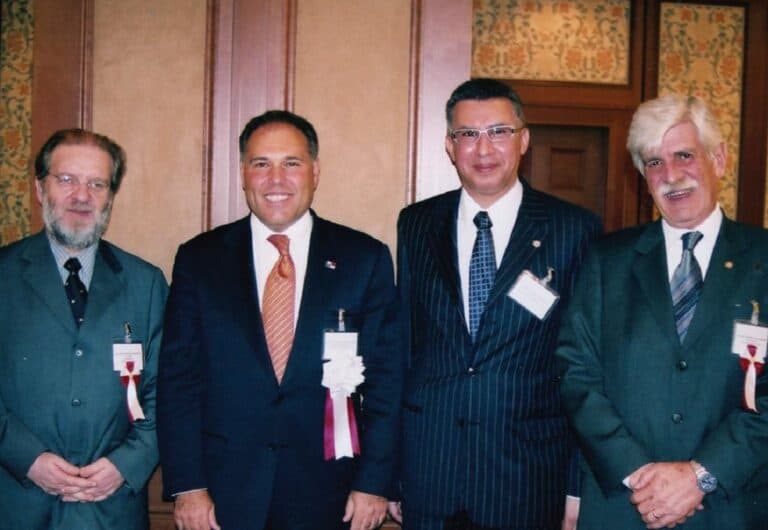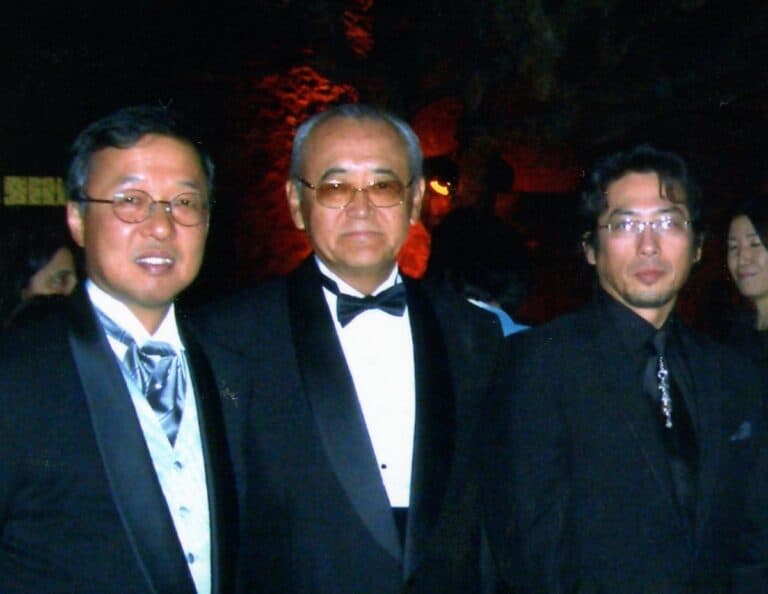[INTERVIEW] Being the bridge between Spain and Japan

Ambassador of Spain to Japan Jorge Toledo Albiñana
Japan and Spain are two countries that not only share a solid friendship but are also share core values. The Spanish Ambassador to Japan graced us with insights into his history and time as a diplomat in Japan, as well as his views on the areas of greater collaboration and economic development between the two countries he loves.
Born in Germany and raised in Spain, Jorge Toledo Albiñana has always had a deep interest in diplomacy, even as young as 11 years old. He officially began his career as a diplomat at the age of 24 and went on to hold several roles in global relations throughout his career. Prior to his appointment as ambassador to Japan in December 2018, he was the Secretary of State for the European Union. He was first posted to Japan in the 1990s, making this ambassadorship his second assignment in Tokyo, one that he was more than happy to embrace. In his words, “In 1999 when I left Japan, I told myself I want to come back, and I want to come back as ambassador.”
Q: Please reflect on your time as Spanish Ambassador to Japan.
One could say it was my dream to become Spanish Ambassador to Japan. My first experience of Japan was at the Spanish Embassy in Tokyo as First Secretary 25 years ago. It left a lasting impression on me and now a dream has come true. I will always treasure the experiences I amassed during those years and the friendships I was able to develop in this wonderful country.
Q: What were the most memorable events during your time as Ambassador to Japan?
Looking back, the negative part was certainly COVID 19. On the positive side, I would say Emperor Naruhito’s enthronement ceremony was one of the most memorable events. I had the honor to accompany Their Majesty, Felipe VI, the King and Letizia, Queen of Spain to the enthronement ceremony, which I must admit, was very impressive.
Another noteworthy event was the G20 Summit in Osaka held in 2019, which I attended and accompanied our president, Pedro Sánchez. Of course, there is also the Tokyo Olympics in 2021 that was undeniably brilliant. Although there were no spectators, I was fortunate enough to be the Ambassador here in Japan during these Games. I was able to watch them in person because I had a special accreditation by the Spanish Olympic Committee to attend. That was truly a privilege that I will never forget.
In addition, I would like to note that I also had the privilege to experience the 1998 Winter Olympic Games held in Nagano during my time as First Secretary 25 years ago. I attended the Games together with Juan Carlos I, the King, and Sofía, Queen of Spain. Thus, I have been remarkably fortunate to experience both winter and summer Games in Japan.
In general, I have wonderful memories of Japan and genuinely love this country, the people, and the culture. The country and the experiences it has given me will always have a fond place in my heart.

Q: You are the current Spanish ambassador to Japan. However, before that, you were also secretary of state for the European Union. This is a very important position. Have you felt you also had a responsibility to represent Europe?
Absolutely. My diplomatic career developed between Asia and the European Union, except for a three-year stint as ambassador in Senegal,
I have been on the diplomatic career path for over 33 years now, and more than half of it has been devoted to European Union affairs. So much so that my last posting before coming here was Secretary of State for the European Union, which can be likened to being a vice minister. In many European Union member states, the post is known as “minister for Europe”.
Before that, I was director of European affairs in the Prime Minister’s Office. Hence, I consider myself a European, and not only a European but a pro-European.
I was born in Germany and my mother was born in France. Essentially, I am Spanish as well as a Spanish diplomat. Therefore, I consider myself a pro-European.
DIPLOMATIC RELATIONS
Q: What can both countries learn from each other?
Like Spain, Japan is a very old country, and both countries share common important values, such as human rights, the rule of law, and democracy. As a result, we are not only friends but also maintain extremely good relations. As we share values, we defend them together in the international arena.
It is not about teaching anybody, but we look at Japan right now as a very important country in this region, which is one of the most significant regions in the world.
Most especially, we look at Japan as a defender of free trade and the rule of law in the region, a defender of maritime freedom, freedom of navigation, and of multilateralism in the region. These are all very important for us – the Indo-Pacific and the fact that we want to see this region prosper in peace and stability and that Japan is one of the main defenders of this concept.
TRADE AND ECONOMY
Q: What are some areas you would like to see further progress in the field of trade relationships between Japan and Spain?
Well, let us start with the ones that are already yielding a large amount of progress. One of these is pharmaceuticals. We are also experiencing a large increase in trade activities in the chemical and materials sector. That includes car components and car parts.
Spain is one of the largest exporters in the European Union, and one of the largest exporters of industrial products and technology. We represent a significant car and car components industry.
Contrary to common perception, Spain is a large exporter of industrial goods. Yet, we are also an important exporter of agricultural and fish products, especially to Japan. For instance, we are the largest European exporter of pork products to Japan, and that is not limited to just our famous jamón.
What I would like to see is the opening of the Japanese market to some of our very best agricultural products – citric products, like oranges, which cannot be exported to Japan due to very rigid phytosanitary regulations in Japan.

Spanish oranges and lemons are famous for being among the best in the world. Hence, it is unfortunate that these products exported all over the world to markets with some of the most demanding and strict phytosanitary regulations cannot be exported to Japan yet.
On many occasions, we have endeavored to renegotiate for an opening of the market for these products – to no avail. For the moment, we continue to collaborate with our Japanese counterparts requesting the Japanese government to review the stringent regulations that are still in place.
Having mentioned this, we have been making progress in other areas. In fact, the situation has improved remarkably, since I was here 25 years ago. For one, the strategic economic and trade agreement with the European Union has been of immense help.
For instance, we have very good wines, which now we import to Japan with no tariffs. This is an extremely positive development. In addition, we can find Spanish cheese in selected supermarkets here in Japan, and Japanese consumers are increasingly appreciating it.
In summary, we have been making progress in many areas. However, there is much work ahead of us and a review of these stringent important regulations towards Spanish citric fruits is an area of high importance to us.
CULTURE AND SPORTS
Q: Besides trade and diplomacy, there is a lot of exchange of sports and culture. Are there any plans for further collaboration in the field of education, cultural exchange, and sports for everyday relationships?
Just before becoming Ambassador to Japan, Spain and Japan celebrated their 150th anniversary in 2017. We held an excellent and successful photo exhibition, which we have used to decorate this residence and the embassy. Indeed that was one of the most successful events that we held during the 150th anniversary.
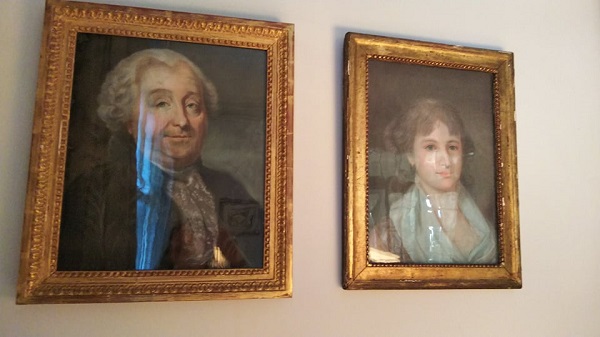
Spain has produced leading sports personalities in various sports – golf, tennis, F1, motorcycle, and of course, football (soccer). Our friendship with Japan in the field of sports is very strong.
It is worth mentioning that the Spanish Chamber of Commerce here in Japan gave Andres Iniesta, who is currently playing for Vissel Kobe, the annual prize of the Spanish Chamber of Commerce, “Spain Japan Business Contribution Awards 2021” and I had the honor to hand over the prize to Iniesta himself. Iniesta loves Japan and he is very happy living in Kobe with his family. On numerous occasions, he has been supportive and we thank him for that.
However, there is one area we need immediate improvement and our main objectives now are to resume changes in this pressing matter. It has been very tough for students who are waiting – students who have not been able to accomplish their dream of studying in Japan and vice versa, especially foreign students. Spanish students that had plans to come to Japan, and were even awarded scholarships and admitted into Japanese universities, have not been able to enter Japan for almost two years now.
These students write to us every day and we are trying to convince the Japanese government to open up for them. Most certainly, we understand the severity of the pandemic situation and that we need particular care to ensure that the pandemic does not spread. However, there are ways to go about it. It is my hope that Japan will open up again to these students soon.
The same goes for artistic and cultural events, and in general, a gradual opening of the Japanese frontiers too. Fortunately, even with the very strict regulations, we have been able to hold some exhibitions, and we would love to have more.
There is one very important exhibition, but nowadays it is very difficult to organize something involving Spanish artists coming to Japan because of the border closure. Hence, there are several projects waiting for this horrible pandemic to ease down.
SPANISH CUISINE
Q: Spanish cuisine is famous all over the world and the Japanese, in particular, are very fond of Spanish cuisine. Do you have any particular recommendations for our readers?
Spanish contemporary cuisine is increasingly popular in Japan. We share many similarities with Japanese cuisine and there are more than 1,500 Spanish restaurants all over Japan. That is one big change since I was here 25 years ago when there weren’t many Spanish restaurants yet.
These days, many Japanese go to Spain, to visit one of the very good Michelin star restaurants in Spain, among many other activities attractions we have to offer in Spain. Some of these famous restaurants have even opened branches in Japan in the last two years. Unfortunately, we have not been able to promote it as we would have loved to, for example, by bringing Spanish chefs to Japan and being able to receive Japanese enthusiasts in Spain. We look forward to conditions improving and to resuming the flow of goods and people between our two great countries.
We appreciate your time and thank you for this interview.

For more information visit: Spanish Embassy in Japan
Interview conducted by David Schneider
Coordinator: Hiroko M. Ohiwa
Read more:
- Embassy Watch


